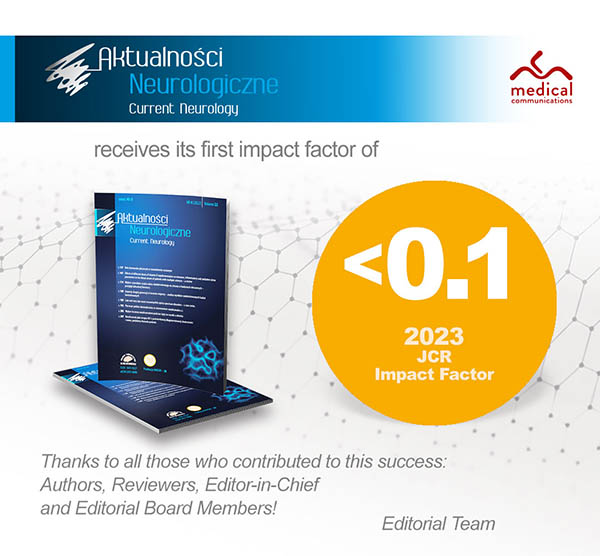MMP-2 and MMP-9 as prognostic factors in ischaemic stroke
Justyna Zielińska-Turek1, Grzegorz Turek2, Dominika Jakubowicz-Lachowska1, Sławomir Ławicki3, Robert Pogorzelski1, Monika Chorąży1, Wiesław Drozdowski1
 Affiliation and address for correspondence
Affiliation and address for correspondenceObjectives: No widely available, adequately sensitive diagnostic test to establish prognosis in stroke patients has been developed thus far. The aim of this study was to analyse changes in plasma levels of MMP-9 and MMP-2 as potential prognostic factors in patients with ischaemic stroke. Methods: The study included 56 patients presenting with the signs of ischaemic stroke for less than 24 hours, and 60 healthy controls without a history of neurological and/or inflammatory disorders. Plasma concentrations of MMP-2 and MMP-9 were determined immunoenzymatically at admission (i.e. within 24 hours of the cerebrovascular episode) and on the 7th day of hospital stay. Results: Median concentrations of MMP-9 in stroke patients were significantly lower than in the controls, both at admission and on the 7th day of hospital stay. No significant changes in the concentration of MMP-2 in ischaemic stroke patients were observed during the course of hospital stay. No significant association was found between both MMP concentrations and neurological status of patients with cerebrovascular episodes. Conclusions: The lack of significant associations between plasma concentrations of MMP-2/MMP-9 and clinical status suggests that these metalloproteinases should not be used as prognostic factors in patients with ischaemic cerebral episodes.








